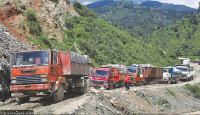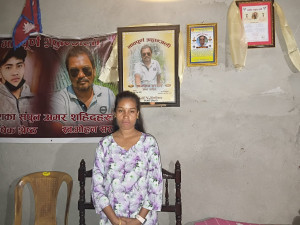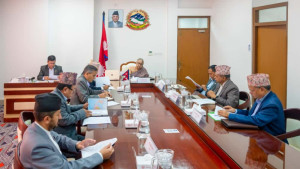Opinion
Power within
Policymakers need to create a favorable environment to realise Nepal’s multiple potentials
Daman Bahadur Ghale
Nepal has always remained an independent and sovereign nation throughout its entire history. There was a time when almost every nation in the world was divided into either alliances or a colony of the so-called power blocks; be it during the world wars or the Cold War period. However, Nepal, with its unique geography and people, has always been able to preserve her independence from outside aggressors. Some of the strengths of Nepal are explained below:
Nepal is a multiethnic, multi-lingual and multi-cultural country where different ethnic and cultural groups have been living together in harmony for centuries. Unity in diversity in terms of ethnicity, religion and culture has been the strength of Nepal since its inception. It is with this background, that the concept of unity in diversity was adopted by the state post unification of Nepal. Such tolerance, harmony and peace in society despite its heterogenous nature is rarely found in other countries. This strength can be utilised to turn Nepal into one of the most democratic and prosperous nations in the world.
Stragetic gain
The other strength of Nepal lies in its strategic location, which, if properly utilised can help develop the country. Nepal occupies a pivotal position in the Himalayas and lies at the center of the South Asian region. Furthermore, Nepal borders China and India, which are emerging as global powers of the 21st century. This holds multifold benefits for Nepal’s national interest and development. Nepal’s location is strategically vital in the present global geo-political and geo-strategic scenario in general and regional power balance in particular. What Nepal should understand is, until the Cold War period, it did not have a special place in the eyes of the global powers. It does now. So there is an immediate need for Nepal to use it to its advantage by displaying diplomatic maturity as things might not stay the same forever. Policymakers should work to cash this strategic advantage for which there is no better time than now.
Furthermore, Nepal is endowed with plenty of natural resources: rivers, lakes, mountains, forest and minerals, all of which hold tremendous potential for growth. As a state with the second largest hydropower potential in the world, it can also draw the attention of economically powerful countries as water has become a scarce resource globally. Thus, Nepal is a land of great potential.
Economic centre
Add to it Nepal’s strategic location in Asia, its honest and hardworking people and wonderful weather almost round the year. These should be make for an appealing environment for international entrepreneurs to invest their capital. Investors can also benefit from Nepal’s proximity with the two em-erging Asian giants along with South and East Asia. Geographical proximity is one of the major considerations while formulating foreign as well as trade policies which draws geo-economic lines that help economic development of any particular country or region. Therefore, Nepal with its unique geography and wonderful weather, can also be an educational and cultural centre in addition to being a tourist destination. There is no reason why it cannot become an international commercial hub too.
Dedicated Army
The Nepal Army is one of the oldest institutions in South Asia with a long and dignified history in serving the nation and its people. It has been part of all crucial moments in Nepal’s history and performed its task, whether it be internal duties or safeguarding national independence from external aggression, deligently. Moreover, ever since Nepal became a democratic nation, the Army, has effectively fulfilled its duties under a civilian and legitimate government by being accountable to the people, and abiding by its organisational values institutional ethics.
The Nepal Army has always been committed to working under a democratic set up which was proved by the institution’s professional efficiency in the recently concluded Constitutent Assembly. It fulfilled its duties in a manner an old and matured national army would. The institution, will continue to provide its support to the to the legitimate government and help democratic institutions further take root in Nepali society and consolidate peace and stability.
Not all the countries necessarily posses such a right mix for development as Nepal does. Hence, the most important task at hand is to make the most out of these existent opportunities. Policymakers, in particular, should create a conducive environment to realise Nepal’s potential and expedite its development.
Ghale is a former Major General of the Nepal Army




 16.12°C Kathmandu
16.12°C Kathmandu










